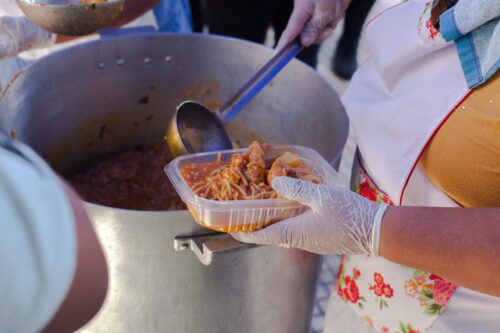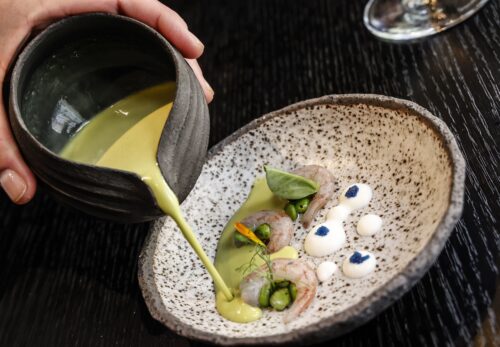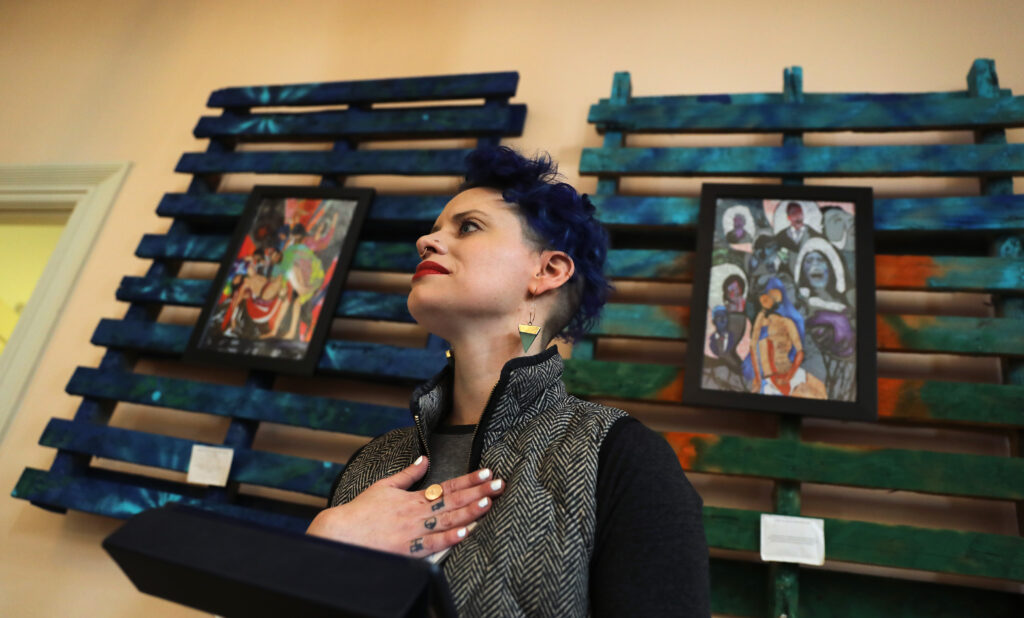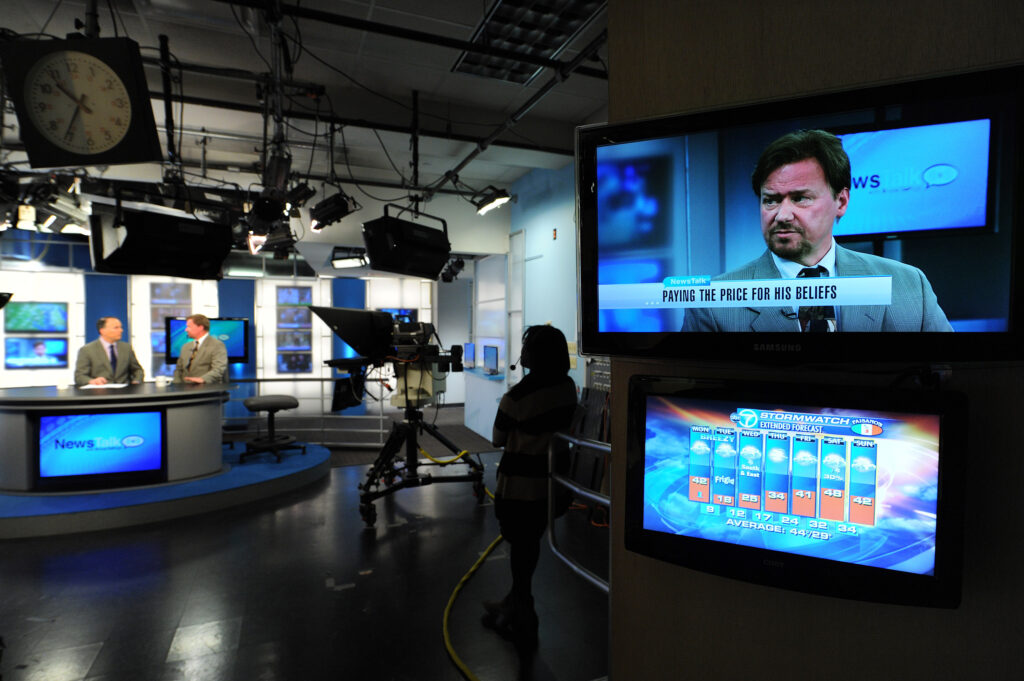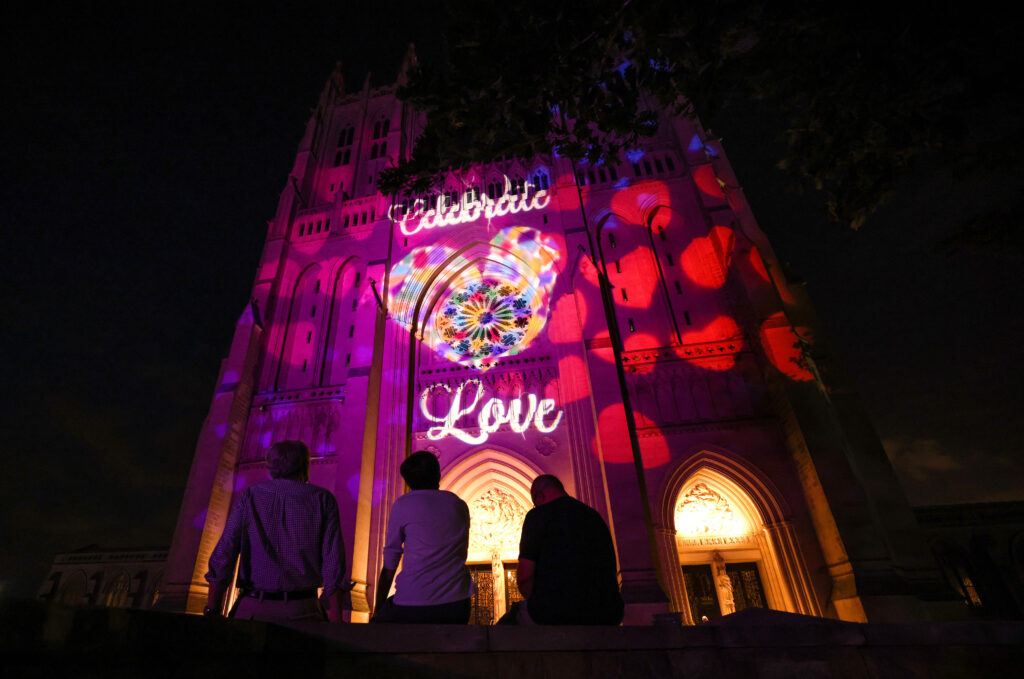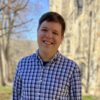Being LGBTQ+ in U.S. Protestant Churches
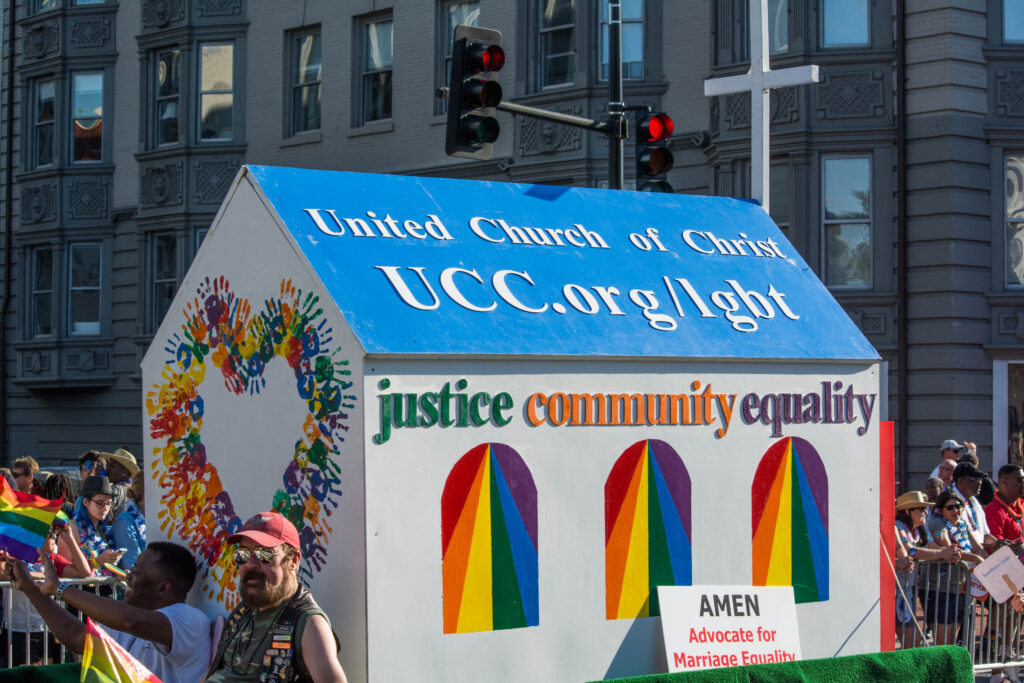
When Meredith first came to St. Michael’s Episcopal Church, she had just turned 50, she was battling cancer, and she was in danger of losing her home. [1] [1] All personal and church names have been changed to protect people’s privacy. To make matters worse, she was estranged from her family due to coming out as a lesbian. Having been a faithful churchgoer in her youth, she hoped that finding a church where she could be open about her sexuality might provide comfort in her dire situation. But it took her a long time to build up the courage to go back to church.
“Every Sunday morning for a month,” she said, “I would get out of my car, walk up to the church door, have a panic attack, and go home because I was too scared of what they’d do when they found out I was gay.”
Meredith and I were sitting inside her SUV as she told her story, watching parishioners escape the Michigan snow and walk inside the bright red sanctuary doors of St. Michael’s. It was the same outsider’s view she’d had on those panic-inducing Sunday mornings. Brushing strands of brilliant fuchsia hair out of her eyes, Meredith chuckled, telling me that, in retrospect, she shouldn’t have been nervous. She eventually walked through the red doors once, then again, then weekly. She met a gay man on her first visit, and they now frequently serve together as ushers collecting the weekly offering.
“For the first six months, I had at least one part of the service where I would just not be able to contain my tears,” she says. “I was so moved by liturgy and the general feeling of well-being in that sacred space. That holiness just swirled around me. I was really grateful to feel so at home here.” Meredith started to cry. I did too.
Meredith’s experience may seem like an anomaly amid a constant torrent of church-sanctioned homophobia and transphobia in the United States. A growing number of states are legislatively curtailing or eliminating queer (and particularly transgender) civil rights, with the vocal support of some prominent Christian leaders.
As the news swirls not with holiness but with hate, it is tempting to paint all Christian groups in the U.S. as unwelcoming and dangerous for LGBTQ+ people. It may be even more tempting to broadly assume that all U.S. Christians view queer identity to be in opposition to religious experience, identity, and practice.
But in my ethnographic fieldwork with Christian groups in Michigan that make queer-affirming commitments, I’ve spoken with many people of faith who desire to work toward more inclusive futures.
I focus on “mainline Protestant” denominations, which the Pew Research Center estimates to include just under 15 percent of the U.S. population. The mainline denominations in which I work—the Episcopal Church, the Presbyterian Church (USA), and the United Church of Christ—have taken progressive stances on issues of LGBTQ+ equality and civil rights as far back as far as the 1960s. Members frequently voice opposition to queerphobic practices weaponized by other religious groups. They advocate for greater acceptance of queer identities and for policies that promote queer participation at the local congregational level.
Increasingly, LGBTQ+ church members like Meredith have found spaces in mainline congregations to explore how their identities can intersect with religious devotion. Their participation is not only transforming themselves but also changing the ways these churches approach theology, public engagement, and activism.
A few weeks after speaking with Meredith, I interviewed Benny in the library of Second Presbyterian Church. He brought us pizza from the parlor down the street, and while we talked, his loyal terrier slept at his feet. He smiled broadly as he told me about his awkward experience when he attempted to join a nearby megachurch.
“I’ve never been too wild about what I call ‘the big church,’” Benny said. “No one ever said hi, or talked to me, or anything. I felt like, What’s wrong? I don’t wear the great big rainbow flag on my head, you know.”
Benny believes the megachurch’s members were so standoffish because they assumed he was gay, although he never came out to anyone. After Benny inquired about becoming a member, the assistant pastor never called him back. When he finally talked to him, the assistant pastor said, “Well, you can’t get married here!” Benny was confused because he hadn’t said anything about marriage. The pastor continued, “You won’t be able to serve on any committees or serve in any capacity because of your lifestyle.”
“So,” Benny replied, “you’re telling me you’ll openly discriminate against me because of my lifestyle, but you’ll take my money? That ain’t gonna work.” He never went back.
Clearly, not all mainline Protestants are queer-affirming. Some display the same behaviors Benny encountered at the megachurch. Some can offend, underserve, or reinforce systems of exclusion against LGBTQ+ people. They can display ambivalence or even disdain for people who hold identities outside of normative heterosexual and/or cisgender orientations. And many individual mainline congregations and regional bodies remain ideologically mixed on the topic of queerness.
For example, when the United Methodist Church voted in 2019 to continue to disallow same-sex marriage and the ordination of openly queer pastors, progressive congregations’ resistance to these policies revealed widespread support for queer inclusion within certain parts of the denomination. As a result of this fundamental division in ideologies, more than 7,500 conservative-leaning congregations have split from the United Methodist Church since 2019, many of them coalescing to form a new denomination, the Global Methodist Church. The schism shows that even debating LGBTQ+ issues can sometimes pose a risk to mainline denominations’ unity and cohesion.
Meanwhile, other mainline denominations have embraced same-sex and gender-neutral marriages, and the ordination of LGBTQ+ pastors, including the Episcopal Church, the United Church of Christ, and the Presbyterian Church, where Benny now belongs.
As Benny and I sat in the library of Second Presbyterian, I asked him why he seemed so happy while talking about being rejected by the megachurch. He said it was because that experience ultimately led him to this welcoming church. Since becoming a member a year before, Benny joined one of the congregation’s planning committees, volunteers regularly for church events, and has built abiding friendships with the congregation’s other queer members.
“I don’t think there’ll ever be a gay parade in town, but when I did come, I was welcomed with open arms,” he said. “I haven’t felt any conflict with anybody regarding my sexuality or who I am. … If I were to bring somebody with me, we wouldn’t be whispered about.”
Interestingly, some people I spoke with confessed that though their church received them with open arms, they experienced concern about their participation in church from a potentially unexpected source: fellow members of the LGBTQ+ community.
A month after speaking with Benny, I walked across the lawn of Nazareth United Church of Christ, passing six doors painted in rainbow colors and inscribed with the message “God’s Doors Are Open to All.” Richie met me in the sanctuary, with a latte in hand and a campaign button for LGBTQ+-friendly Governor Gretchen Whitmer pinned to their denim jacket. We sat in one of the pews under a rainbow banner that proclaims “Jesus Didn’t Reject People. Neither Do We.”
Richie explained that they sometimes get pushback when talking to nonreligious friends about church. These friends say Richie will ultimately experience scrutiny or humiliation by trying to fit in with a congregation that will never fully accept them due to their queerness. Furthermore, Richie’s friends say, by refusing to emancipate themself from religious institutions, Richie perpetuates institutions that often harm queer people. In doing so, they tacitly condemn queer people to further poor treatment.
“In the LGBT community, I can get a lot of weird looks,” Richie said. “Like when I go on a date, and he asks me what I’m doing on Sunday, and I say, ‘I’ll be at church.’” Richie gave me a feigned dramatic look combining terror and extreme confusion. We both giggled. “No second date for me,” they deadpanned.
Some of these encounters probably happened out of genuine surprise, Richie noted. “I guess they don’t expect a queer person who watches RuPaul’s Drag Race to also be a church nerd who sings in the choir.”
When Richie gets critiques like this, they try their best to explain that their relationship with the church is “complicated and beautiful.” Then, they list the benefits that being part of a church has provided. Despite the potential congregations have to be harmful, Nazareth is a space where queerness is not only tolerated but celebrated. “The pastor always ends his sermons by saying ‘God loves all of you, with no takebacks,’” Richie said. “That ‘all’ includes me, and that means so much.”
Through their participation, Richie has an opportunity, alongside a community of other queer members, to make their church more inclusive and welcoming. Even more importantly, they attend with their mom, who has learned to be a more vocal ally to Richie by being part of a congregation that is so openly supportive of its queer members.
The day I walked through the doors of St. Michael’s after speaking with Meredith, I saw how queer members played significant roles in the church, from performing necessary tasks to engaging in transformative conversations. Some carried vases of flowers to adorn the altar. Some set out bread and wine for the Eucharist. A few wore choir robes as they walked in the procession that accompanied the first hymn. Others stayed after the worship service to participate in a monthly meeting of the administrative council. Some would return the next day for a Bible study exploring queer-affirming interpretations of verses often used in other Christian circles to condemn LGBTQ+ people, colloquially called the “clobber passages.”
These individuals’ experiences are a reminder that, though queer folks face significant impediments in many religious spaces, there are also places where queer Christians like Meredith, Benny, and Richie take a risk, walk through church doors, and become active agents in religious meaning-making. In doing so, they initiate processes of reconciling faith with sexuality and gender identity. And their efforts offer vital insights into both LGBTQ+ lived experiences and what it means to be religious.
